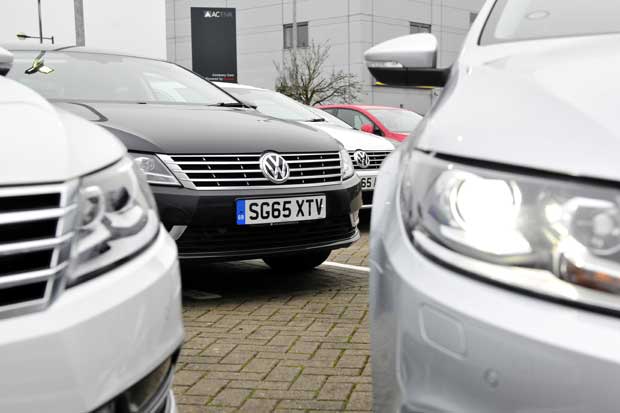23 February 2016
Stop punishing company car drivers and review tax system, BVRLA tells government
The government should ‘stop punishing company car drivers', according to the British Vehicle Rental and Leasing (BVRLA) as it published its demands ahead of the 16th March Budget.

The organisation, of which Activa Contracts is a member, has urged the government to carry out a wholesale review of the current system of company car taxation, recognising the benefits those vehicles bring in terms of reduced emissions and tax revenues.
However, any major changes are likely to be some years off with the government having already announced company car benefit-in-kind tax rates up to and including the 2019/20 financial year.
Nevertheless, the government has said that in the run-up to this year’s Budget it is reviewing company car tax ‘incentives’ for ultra-low emission vehicles in the light of market developments, so decisions on company car tax can be made from 2020/21 onwards.
The BVRLA says in its Budget submission that benefit-in-kind tax bandings should be reformed to offer a greater incentive for users of ultra-low emission vehicles; a new tax category should be introduced for electric vehicles that takes their range into account; and in-life incentives should be provided for drivers of ultra-low-emission vehicles.
Separately, John Pryor, Chairman of fleet operators’ representative organisation ACFO, said the majority of businesses, fleet decision-makers and company car drivers liked the current CO2-based company car tax regime because it was simple and straightforward to understand.
In calling for the fairer treatment of company car drivers, BVRLA Chief Executive Gerry Keaney said: ‘Since George Osborne became Chancellor in 2013, company car drivers have been hit by a series of tax increases that are both unfair and unsignposted.
‘It is no coincidence that we have seen 30,000 fewer employees taking a car as part of their work package during this period.’
As a result, the BVRLA has suggested that more and more company drivers are instead choosing to use their own privately owned vehicles, which on average tend to be older, less safe and more polluting.
Mr Keaney said: ‘By encouraging employees to give up their company cars, the government risks hundreds of thousands of motorists opting for older, privately-owned vehicles that are not built to the same safety and emissions standards.
‘In 2015, BVRLA members purchased nearly 50% of all new vehicles sold in the UK, and the average BVRLA member’s leased car emitted just 117.8g/km CO2.’
Going forward, the BVRLA has calculated that the effect of the two percentage point increase in company car tax from 2017/18 and the delay to April 2021 in removing the 3% diesel supplement ¬– it had been expected to be abolished from April 2016 – will cost the average company car driver an additional £626.94 in 2017/18, and an extra £882.26 in 2018/19 compared to what they paid in 2013/14.
Mr Keaney added: ‘The Chancellor must use the Budget to reverse some of the damaging decisions he has made recently, including the delayed abolition of the 3% diesel supplement. These measures are at odds with the government’s stated aims to increase the take-up of ultra-low emission vehicles and improve air quality in the UK.’
Mr Pryor said: ‘Any tax system must be fair and equitable and ACFO believes that is the position with the current regime. Choice lists can be compiled and drivers can make their selections in the full knowledge of what their personal tax position will be.
‘Contrast that with the previous regime, which encouraged employees to clock up mileage in pursuit of lower tax bills. That was not only unfair, but it also encouraged journeys to be made, which contributed to traffic congestion and pollution.
‘Over many years, ACFO has been consistent in its call for clarity and long-term decision-making so that fleets and company car drivers can plan for the future in full knowledge of what the tax burden will be.
‘For example, presently we know what company car benefit-in-kind tax rates will be until the end of the 2019/20 tax year and that enables company car choice lists and vehicle selections to be made in the full knowledge of what the tax burden will be during a company car’s typical lifecycle.
‘The government must retain that policy of announcing tax rates four or even five years in advance.’
The BVRLA in its Budget submission has also called for:
- Abolition of the 3% diesel supplement on benefit-in-kind tax bands for Euro6 emission cars from 2016.
- Leased vehicles to be eligible for 100% first year capital allowances.
- The benefits of company salary sacrifice schemes to be safeguarded.
- Incentives to be provided for the fitment of Autonomous Emergency Braking technology to vehicles.

